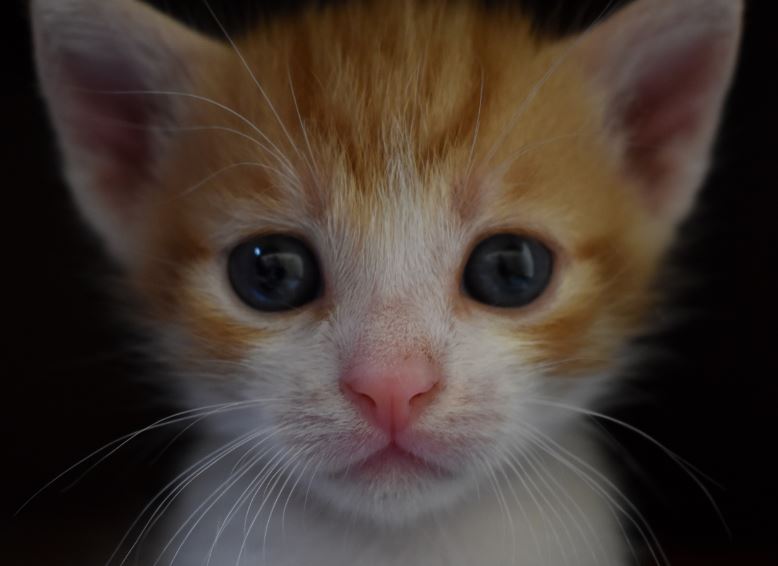
A close relationship with a cat can lead you to believe that they are capable of experiencing many of the same feelings as you. However, have you ever found yourself thinking if cats can cry?
The answer is no, cats do not shed tears in the same way people do, when they are upset.
However, they still experience sadness and even loss, and they each have their own unique means of expressing these feelings. There are some medical conditions that can cause your cat’s eyes to become wet, so if you notice this, it’s best to see your usual veterinarian to rule out a more serious problem.
Cats Are Emotional Mammals
Studies has proved that cats are capable of feeling. They are able to see your facial expressions, which allows them to experience a wide range of emotions about you. When cats feel something, they tend to act on it. For example:
- If a cat is in a good mood, it may scratch, play, growl, or interact with humans and animals.
- A depressed cat may become sluggish, eat less, and isolate itself.
- Angry or fearful cats may hiss, bend their back, snarl, or swat at someone or something else, depending on their mood and aggression.
The Truth about Cats’ Tears
When cats “cry” or “water” their eyes, mostly, it is due to a medical issue, not an emotional one. The irritation could be caused by a speck of dust in the eye or a wound from another cat. Infectious disorders like upper respiratory infections can also induce tears. Tears can also be caused by blocked tear glands.
The following are other potential explanations for a cat’s watery eyes:
• Conjunctivitis (pink eye)
• Infections
• Allergies
• Structural issues (More tears are shed by felines with rounder skulls.)
The tears you witness from your cat are not an indication of a deep emotional response. As a result, they’re demonstrating that something is seriously wrong with them medically. In most cases, the problem is minimal.
However, in some cases cat tears can be a sign of a significant health issue or a condition that could become dangerous if it isn’t addressed. If you notice a lot of tearing, you should see your veterinarian.
Reasons why your cat is crying
If the cat is not crying out of pain or unhappiness, they may be sick or injured. If a cat has tears flowing down her face, there’s a high possibility that the cat is in pain because of something. Issues might be:
Allergies
Dust, pollen, and mold can cause allergic reactions in cats, just like they do in humans. Additionally, they may be allergic to particular foods, tobacco smoke, fragrance, and housekeeping goods. Sniffling, itching, and/or tears are common allergy symptoms.
Dust-free litter, showering the cat to reduce itching and keeping the house cleaned of any contaminants, washing the cat’s bed routinely, and offering them a balanced diet are all the ways pet owners can help alleviate allergies in their feline companions.
Eye Infection
When cats interact with other sick cats, they are at risk of transmitting viruses and bacterial eye infections. Kittens are especially susceptible to eye infections because of their inherently compromised immune systems. Infections in the eyes can also be caused by trauma such as from a shard of glass or a catfight.
Your cat’s eyes should be examined by a veterinarian if you see a cloudy, greenish, or yellow waste coming from them, as well as a red or irritated eyelid or constant blinking.
Cat Flu
When a cat has an upper respiratory infection, often termed “cat flu,” they may display watery eyes. Feline calicivirus or feline herpesvirus infection is the most significant reason. Fever and a reduced appetite are further symptoms of cat flu, in addition to sleepiness.
To treat the flu in cats, veterinarians may use eye drops for pain relief, antiviral drugs to fight off the virus, and antibiotics.
Glaucoma
The improper outflow of the aqueous fluid (the crystalline substance fluid that separates the lens from the cornea) is the primary cause of this disorder of the eye. Cats with glaucoma may show indications such as closed eyelids, straining or rubbing of eyes, ocular enlargement or bulging hazy eyes, and runny discharge.
If you detect any of these signs, you should take your cat to the veterinarian as soon as possible.
How To Comfort Your Cat If They’re Feeling Sad
Always begin with a visit to the veterinarian to rule out any potential underlying health problems. After that, you should concentrate on giving your cat the things that he enjoys the most, like quality time and a special treat. Take some time to play with your cat.
If you are need to be gone for an extended period of time, ask a friend, relative, or a professional sitter to check in on your pets while you are away. Maintaining a regular schedule is the best course of action.
Conclusion
Cats cry, but cats don’t really shed tears. It’s common for cats to cry out in many ways, ranging from an agonizing meow to an agonizing yowl. You should investigate the cause of your cat’s nighttime cries if this is the case, as it can be upsetting.
Cats’ eyes may not get moist, but they are certainly capable of feeling the same kinds of emotions that make us human beings cry. There are several reasons why your cat’s eyes are pouring tears, but none of them is because it’s upset!
Examine the cat’s eyes closely to determine if an infection or damage exists. If the tears continue, don’t put your cat’s eyes at risk — contact your veterinarian right away!






